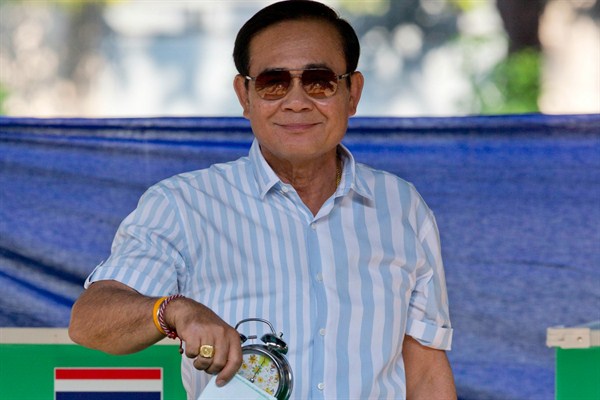In Thailand’s elections on March 24, the military’s proxy party, Palang Pracharath, performed better than pre-election surveys had indicated, finishing with 8.4 million votes, the most of any party. Combined with its seats in the unelected upper house, which is stacked with pro-military allies, Palang Pracharath should control enough seats to ensure that Prayuth Chan-ocha, who has led a military junta governing the country since 2014, will become prime minister again.
Pheu Thai, the populist party aligned with exiled former Prime Minister Thaksin Shinawatra, finished second with 7.9 million votes, but won the greatest number of the 350 constituency-based seats in the lower house, with 137 to Palang Pracharath’s 97. Another strongly anti-junta party, Future Forward, also performed well in the constituency-based seats. The remaining 150 of the 500 lower house seats will be allocated later based on a complicated party list process, with the official results scheduled to be finalized May 9.
Pheu Thai and Future Forward, joined by other anti-junta parties, have formed a coalition in the lower house in an effort to block Prayuth, but it seems unlikely they will be able to do so, since their coalition is narrow and weak. Prayuth was helped by a complex electoral system that the junta midwifed under a new constitution, which was designed to undermine large parties and potentially aid a new party like Palang Pracharath. Despite apparent irregularities on Election Day, the veneer of democracy should be enough for most countries to restore full relations. Washington, for instance, probably will end all restrictions on military education and arms sales to Thailand.

